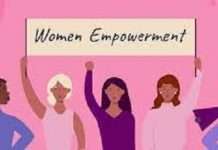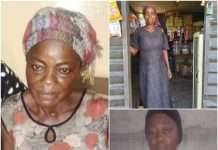
The United Nations, has urged Civil Society Organisations (CSOs) and Women’s Rights Organisations (WROs) on sensitisation to increase investment towards achieving Sustainable Development Goal (SDG) 5 and ending Violence Against Women and Girls (VAWG) in Nigeria.
They made the call at a meeting on Thursday in Abuja, under the UN Women – Ford Foundation project known as Traditional and Cultural Leaders for Ending Gender Based Violence (GBV).
Ms Beatrice Eyong, UN Women Country Representative to Nigeria and ECOWAS, noted the prevalence of VAWG, in spite of interventions.
She added that the meeting would provide platform to discuss strategies and proffer solutions that would end the practice.
Eyong stressed the need to address underlying structures of power within communities, end harmful practices, and transform cultural norms surrounding violence and discrimination against women and girls.
She said: “more still needs to be done to ensure the effective implementation of relevant laws and policies through adequate funding to sustain the achievements recorded in the last few years. As well as establishment of relevant institutions to drive the implementation of the existing legal frameworks that speak to ending violence against women and girls and promoting gender equality and women’s empowerment.
“Today’s convening provides us with an opportunity to take stock of our achievements in the last five years. Identify gaps and challenges and exploring new strategies and partnerships to accelerate progress towards ending VAWG and promoting gender equality and women’s empowerment.”
Vanessa Phala, Acting UN Resident Coordinator to Nigeria and the Country Director of the International Labour Organisation (ILO), noted the under representation of women in politics and decision making, which he said hindered outcome.
He added that the under representation of women in politics also hindered decision making affecting the vulnerable, thereby affecting national development.
Phala, therefore, urged CSOs, WROs and other stakeholders to continue to raise awareness in the lobbying and advocacy around initiatives on ending VAWG and promoting gender equality and women economic empowerment.
“And I urge you all to really continue on this journey and use this convening as an opportunity to share your expertise to share your best practices and challenges in addressing ending violence against women and promoting gender equality and women’s economic empowerment”.
Prof. Joy Ezeilo, Founding Director, Women’s Aid Collective (WACOL) and Chairperson, Sexual Assault Referral Network (SARK), said one third of Nigeria women have experienced violence, which she described as an epidemic spreading across the country.
“Gaps in legal framework are failing to protect the rights of women and girls in Nigeria, and countries are also struggling towards the realisation of 2030 agenda, not just Nigeria,” she said.
Ezeilo, therefore, stressed the need to ensure gender equality, specified as the SDG 5 to reduce cases of violence, poor female representation and improve women economic empowerment.













